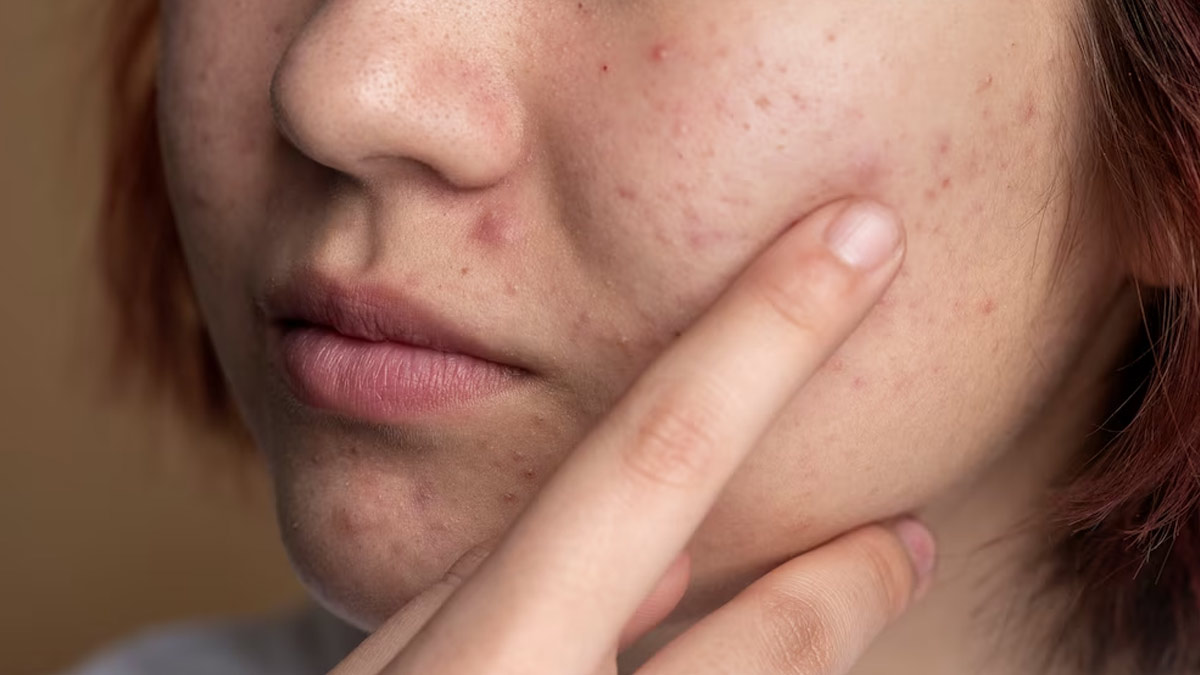
Acne purging, often misunderstood and sometimes mistaken for worsening skin conditions, can be a frustrating experience for many. However, it's important to recognise that purging is a natural process that occurs when your skin undergoes a transition period after starting a new skincare regimen.
Table of Content:-
What is Acne Purging?
Acne purging refers to the temporary flare-up of acne or skin congestion that may occur when you introduce new skincare products or treatments into your routine. It typically manifests as an increase in the frequency or severity of breakouts, blackheads, or whiteheads. While purging can be disheartening, it's essential to distinguish it from a negative reaction to skincare products, which may cause irritation, redness, or allergic responses.
Causes of Acne Purging
Understanding the reasons behind acne purging can help alleviate concerns and manage expectations during this transitional phase. Here are some common causes:
1. Accelerated Skin Cell Turnover
Certain skincare ingredients, such as retinoids or exfoliants like AHAs (alpha hydroxy acids) and BHAs (beta hydroxy acids), work by promoting the shedding of dead skin cells and accelerating cell turnover. As a result, trapped impurities beneath the skin's surface are brought to the forefront, leading to purging.
2. Deep Cleansing
Introducing new cleansing products or techniques that deeply cleanse the skin can dislodge impurities, sebum, and bacteria from the pores. While this is a positive aspect of skincare, it can initially exacerbate acne as the skin adjusts to the cleansing process.

Also Read: Period Sex Do's and Don'ts: Expert Shares Guide for Ensuring Comfort, Hygiene, and Respect
3. Hormonal Changes
Fluctuations in hormone levels, particularly during puberty, menstruation, pregnancy, or menopause, can trigger acne breakouts and purging. Hormonal shifts influence sebum production and the skin's susceptibility to inflammation, contributing to acne development.
4. Product Ingredients
Skincare products containing active ingredients like benzoyl peroxide, salicylic acid, or niacinamide may cause purging as they penetrate deep into the pores to target acne-causing bacteria and regulate oil production. The initial worsening of acne is often a sign that these ingredients are effectively addressing underlying skin issues.
Effective Treatment Strategies
While acne purging is a temporary phase, adopting effective treatment strategies can help minimise discomfort and promote clearer, healthier skin. Here are some tips:
1. Gradual Introduction
When integrating new skincare products, especially those with active ingredients or potent formulations, introduce them gradually into your routine. Start with lower concentrations and frequency to allow your skin to acclimate without overwhelming it.

2. Gentle Cleansing
Opt for gentle, non-comedogenic cleansers that effectively remove impurities without stripping the skin's natural oils. Avoid harsh scrubbing or abrasive exfoliation, as this can exacerbate irritation and inflammation.
Also Read: 5 Lifestyle Strategies for Managing PCOS Symptoms; Know From Expert
3. Hydration and Moisturisation
Maintain a well-hydrated skin barrier by using lightweight, oil-free moisturisers that help balance moisture levels without clogging pores. Hydration is essential for supporting the skin's natural repair process and minimising the risk of excessive dryness or irritation.
4. Sun Protection
Apply a broad-spectrum sunscreen with an SPF of 30 or higher daily, especially when using acne-targeted products or undergoing treatments that increase sun sensitivity. Sun protection helps prevent further skin damage and hyperpigmentation, which can worsen the appearance of acne scars.
5. Consultation with a Dermatologist
If acne purging persists or becomes severe, consult a dermatologist for personalised skincare advice and treatment recommendations. They can assess your skin's specific needs and prescribe medications or procedures to address acne effectively.
Bottomline
Acne purging, while challenging, is a transient phase that signifies positive changes occurring within the skin. By understanding its causes and implementing effective treatment strategies, you can navigate through this period with confidence and achieve clearer, healthier skin in the long run. Remember to be patient, gentle with your skin, and seek professional guidance if needed to address any concerns effectively.
Also watch this video
How we keep this article up to date:
We work with experts and keep a close eye on the latest in health and wellness. Whenever there is a new research or helpful information, we update our articles with accurate and useful advice.
Current Version